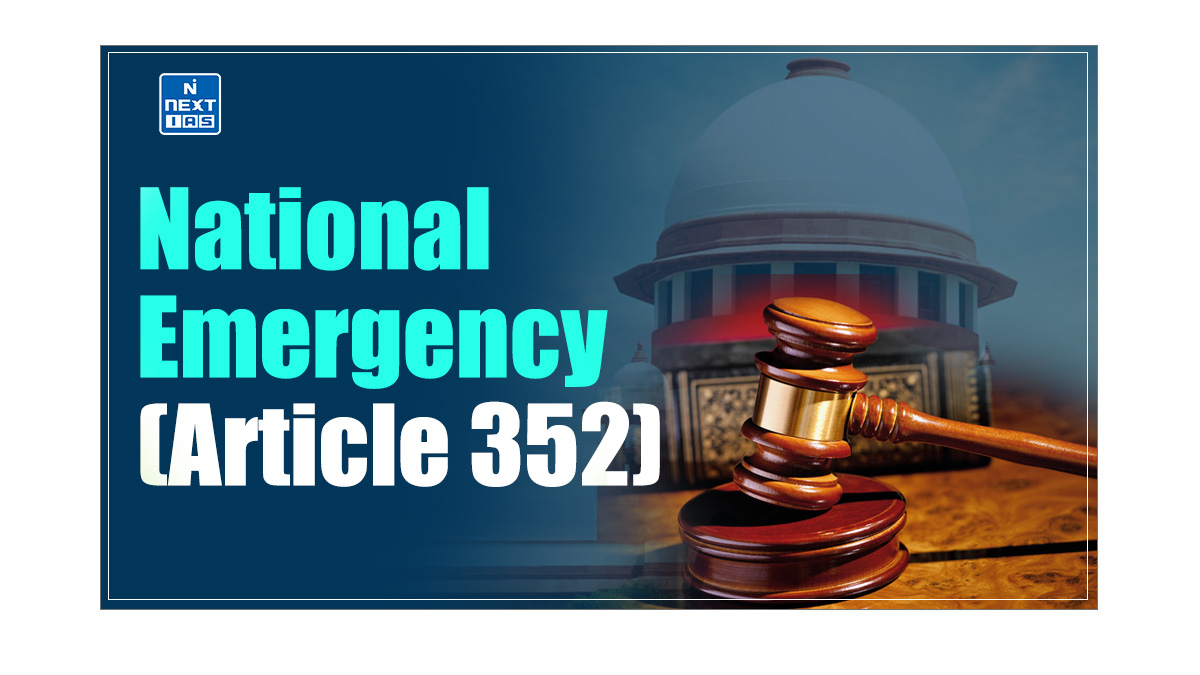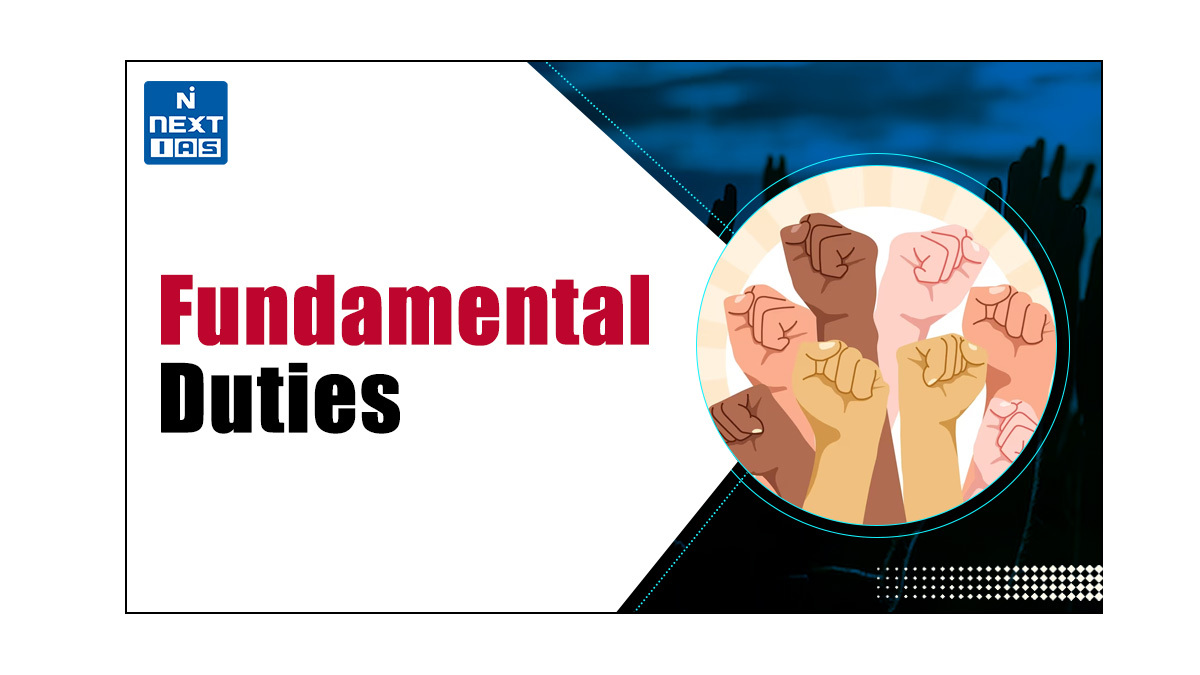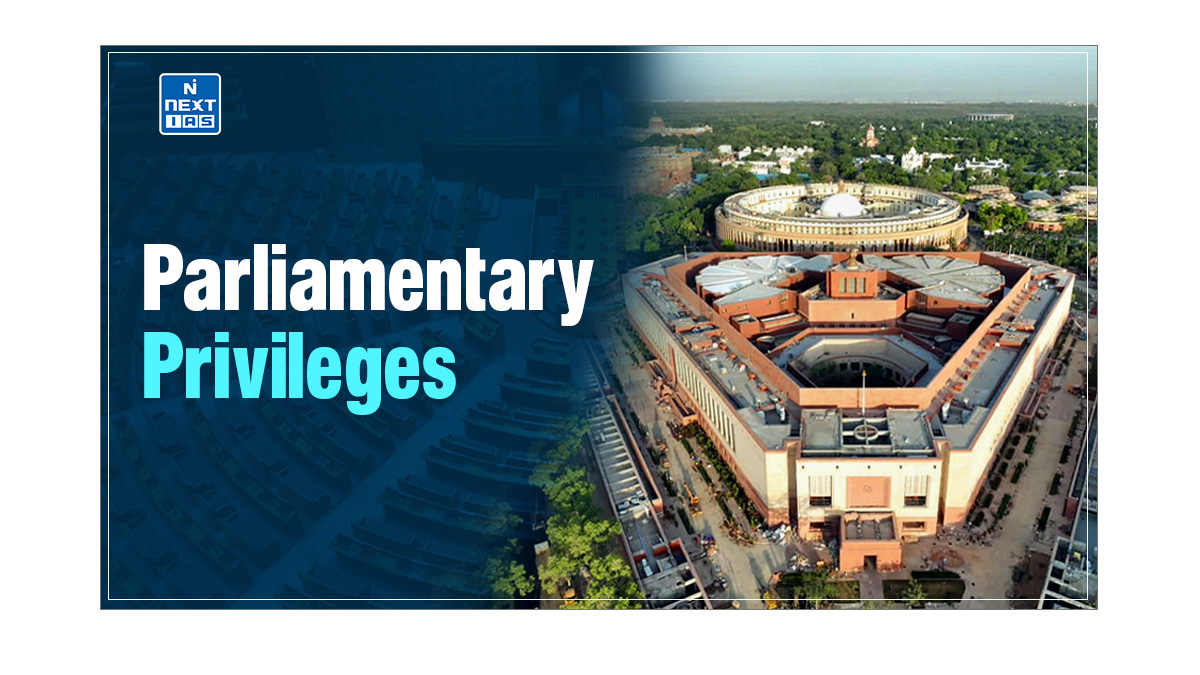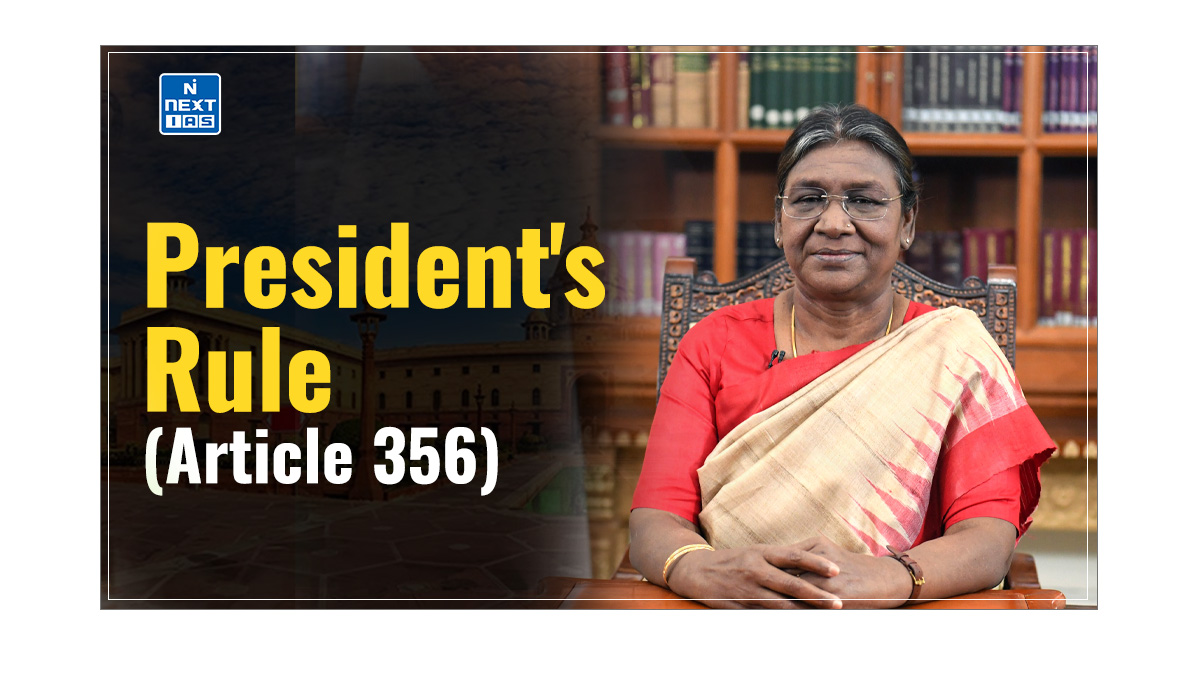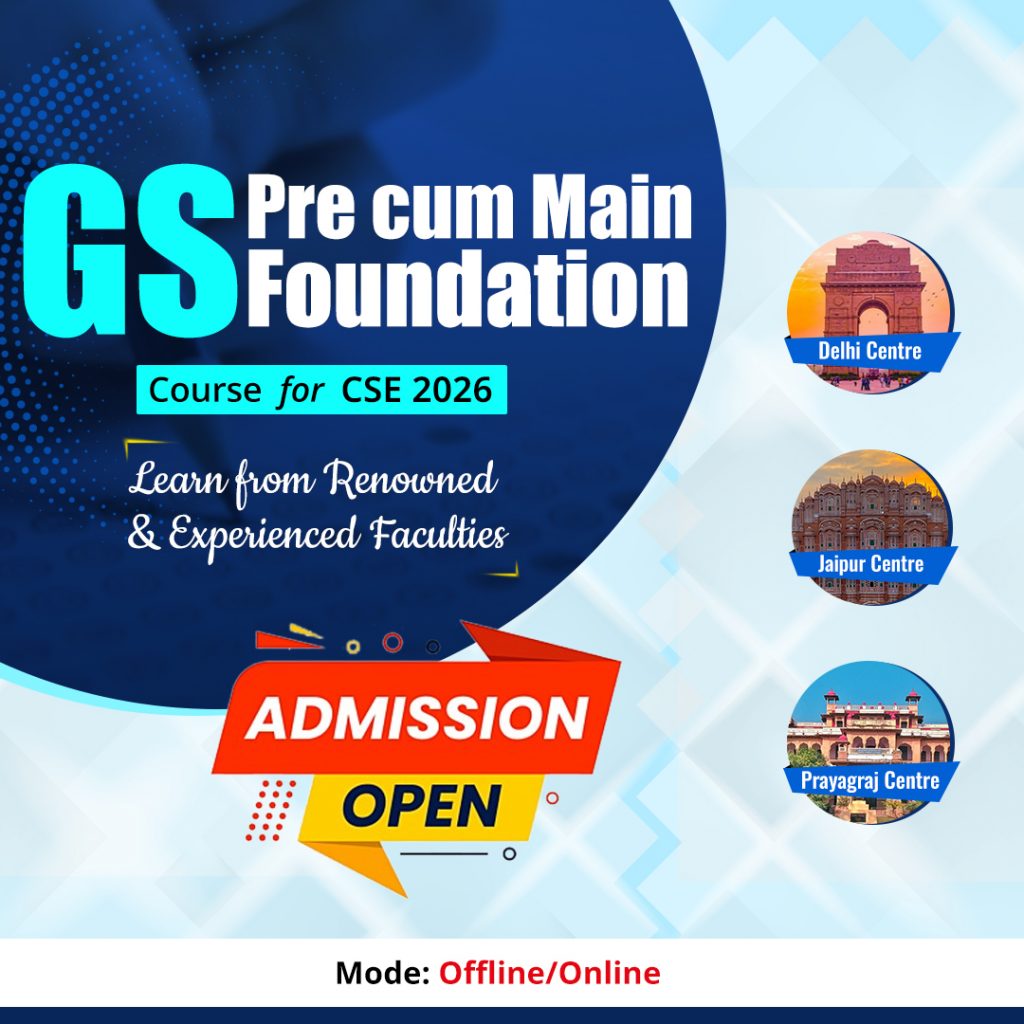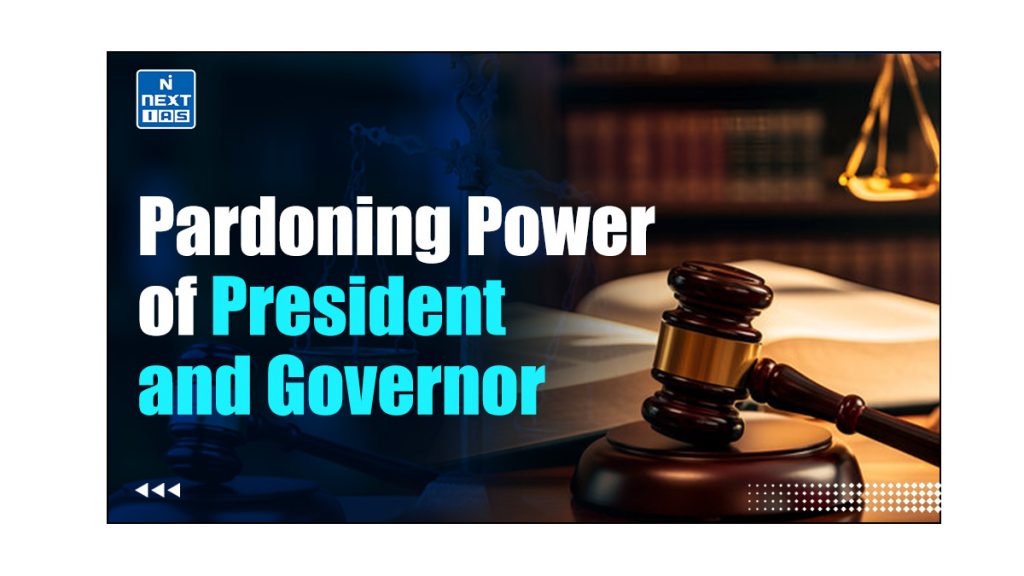
The Pardoning Power of the President & Governors of states in India is a significant aspect of the country’s legal and constitutional framework. By providing relief in specific cases where the judicial process may have resulted in undue hardship, it ensures the correction of a miscarriage of justice and a compassionate governance. This article of NEXT IAS aims to study in detail the Pardoning Power of the President & Governor, its constitutional basis, objectives, utilities, key judicial pronouncements, and other related aspects.
What is Pardoning Power?
- In the context of the Criminal Justice System, Pardoning Power refers to the authority vested in a government executive, typically the President or the Governor, to grant clemency or leniency to individuals who have been convicted of a crime or are facing punishment for an offence.
- This power allows the executive to intervene in the administration of justice to mitigate the severity of punishment, correct potential miscarriages of justice, or address humanitarian concerns.
- It acts as a critical safeguard against judicial errors or excesses and provides a mechanism to ensure mercy and fairness in the administration of justice.
Objectives of Pardoning Power in India
The objectives of the Pardoning Power of the President & Governors of States, as provided by the Indian Constitution, are mainly two-fold:
- To keep the door open for correcting any judicial errors in the operation of law.
- To afford relief from a sentence, that the President or the Governor regards as unduly harsh.
Constitutional Provisions Regarding Pardoning Power in India
The constitutional provisions regarding the Pardoning Power of President & Governor are as follows:
Article 72 – Pardoning Power of President
- Article 72 of the Indian Constitution provides for the Pradoning Power of the President of India.
- The provision and the pardoning power of the President of India are discussed in detail in the section that follows.
Article 161 – Pardoning Power of Governor
- Article 72 of the Indian Constitution provides for the Pradoning Power of the Governor.
- The provision and the pardoning power of the Governor are discussed in detail in the section that follows.
| Note: The Pardoning Power of the President & Governor is independent of the Judiciary. The President and the Governor while exercising this power, do not sit as a court of appeal. |
The Pardoning Power of President of India as well as Pardoning Power of Governor of States are discussed in detail in the sections that follow.
Pardoning Power of President of India
- Article 72 of the Indian Constitution empowers the President to grant pardons to persons who have been tried and convicted of any offence in all cases where the:
- Punishment or sentence is for an offence against a Union Law,
- Punishment or sentence is by a Court Martial (Military Court); and
- A sentence is a sentence of death.
- The pardoning power of the President of India includes the power to grant a Pardon, Commutation, Remission, Respite, or Reprieve.
- All these components are discussed below in detail.
Pardon
A grant of ‘Pardon’ by the President of India removes both the sentence and the conviction and completely absolves the convict from all sentences, punishments, and disqualifications.
Commutation
A grant of ‘Commutation’ denotes the substitution of one form of punishment for a lighter form. For example, a death sentence may be commuted to rigorous imprisonment, which in turn may be commuted to simple imprisonment.
Remission
A grant of ‘Remission’ implies reducing the period of a sentence without changing its character. For example, a sentence of rigorous imprisonment for two years may be remitted to rigorous imprisonment for one year.
Respite
A grant of ‘Respite’ denotes awarding a lesser sentence in place of one originally awarded due to some special fact, such as the physical disability of a convict or the pregnancy of a woman offender.
Reprieve
A grant of ‘Reprieve’ implies a stay of the execution of a sentence for a temporary period in order to enable the convict to have time to seek pardon or commutation from the President.
Pardoning Power of Governor of State
- Article 161 of the Indian Constitution empowers the Governor of a State to grant pardons, reprieves, respites, or remissions of punishment or to suspend, remit, or commute the sentence of any person convicted of any offence against any law relating to a matter to which the executive power of the State extends.
- Similar to that of the President of India, the pardoning power of the Governor includes the power to grant a Pardon, Commutation, Remission, Respite, or Reprieve.
- Thus, the Pardoning Power of the Governor is more or less similar to that of the President. However, the two differ in some respects
- The same can be better understood by making a comparative study of the Pardoning Power of Governors with the Pardoning Power of the President.
Comparison of Pardoning Power of President & Governors
A comparative study of Pardoning Power of President & Governors is presented in the following table.
| President | Governor |
|---|---|
| The President can pardon, reprieve, respite, remit, suspend, or commute the punishment or sentence of any person convicted of any offence against a Central law. | The Governor can pardon, reprieve, respite, remit suspend, or commute the punishment or sentence of any person convicted of any offence against State law. |
| The President can pardon, reprieve, respite, remit, suspend, or commute a death sentence. He/she is the only authority to pardon a death sentence. | The Governor can only suspend, remit, or commute a death sentence. He/she cannot pardon a death sentence. |
| The President can grant pardon, reprieve, respite, suspension, remission, or commutation with respect to punishment or sentence by a court martial (military courts). | The Governor does not possess any such power. |
Difference between Pardoning Power of President & Governor
From the above, it is clear that the Pardoning Power of the Governor differs from that of the President of India in the following two respects:
Death Sentence
- The President can grant pardon in all cases where the sentence given is the sentence of death.
- The Governor cannot pardon a death sentence. He/she can only suspend, remit, or commute a death sentence.
- Even if a death sentence has been given under a State law, the power to pardon it lies only with the President, and not the Governor.
Court Martial
- The President of India possesses the pardoning power w.r.t. punishment or sentences by a military court (court-martial).
- The Governor does not possess the pardoning power w.r.t. Punishment or sentences by a military court (court-martial).
Key Judgments Related to Pardoning Power of President & Governor
- Maru Ram vs Union of India Case (1980) – In this case, the constitutional bench of the Supreme Court of India held that the pardoning power of the President (under Article 72) and the pardoning power of the Governors (under Article 161) aren’t subject to judicial review in its entirety. However, they have to exercise their powers on the advice of the Central Council of Ministers (CoM) and the State Council of Ministers (CoM) respectively, and not as per their discretion.
- Kehar Singh vs. Union of India Case (1988) – In this case, the Supreme Court of India examined the pardoning power of the President and laid down the following principles:
- The petitioner for mercy has no right to an oral hearing by the President.
- The President can examine the evidence afresh and take a view different from the view taken by the court.
- The power is to be exercised by the President on the advice of the Union Cabinet.
- There is no need for the Supreme Court to lay down specific guidelines for the exercise of power by the President.
- The exercise of power by the President is not subject to judicial review except where the presidential decision is arbitrary, irrational, mala fide, or discriminatory.
Significance of Pardoning Power of President & Governor
The Pardoning Power of President & Governor serves several important utilities as mentioned below:
- Correcting Miscarriages of Justice – The pardoning power allows the Executive to intervene and provide relief in cases where the judicial process has resulted in an unjust or disproportionate conviction or sentence. It acts as a safeguard against errors or biases in the judicial system.
- Maintaining Checks and Balances – The pardoning power acts as a check on the judicial branch, providing the executive with a means to balance or override judicial decisions in exceptional circumstances. This contributes to the system of checks and balances between the different branches of government.
- Resolving Political Tensions – In sensitive political cases, the pardoning power can be used to defuse tensions, promote reconciliation, and restore social harmony. It can be employed to address the concerns of marginalized groups or to heal divisions within a society.
- Addressing Evolving Social Norms – The pardoning power allows the Executive to adapt to changing social norms and values over time, granting clemency in cases where the original conviction or sentence may no longer be considered just or appropriate.
Criticism of Pardoning Power of President & Governor
The pardoning power of President & Governor faces several criticisms on the following grounds:
- Potential for Abuse – There is a concern that the pardoning power can be abused for political gain or to protect the interests of those with close ties to the Executive. Pardons may be granted based on personal relationships or in exchange for political favors, rather than on the merits of the case.
- Undermining the Rule of Law – The pardoning power can be seen as undermining the rule of law by allowing the executive to override or circumvent the decisions of the judiciary. This can erode public confidence in the impartiality and integrity of the criminal justice system.
- Lack of Transparency – The decision-making process behind pardons is often opaque, with little public scrutiny or justification provided for the executive’s actions. This lack of transparency can lead to perceptions of arbitrariness and favouritism.
- Undermining Judicial Independence – Pardons can be seen as undermining the sentencing decisions made by the judiciary, potentially rendering the judicial process less independent and less respected.
Conclusion
The Pardoning Power of President & Governor is a vital component of India’s criminal justice framework. While this power serves vital functions in correcting miscarriages of justice and promoting mercy, its exercise must be carefully balanced to avoid the perils of abuse, political interference, and the undermining of the judicial process. Ongoing efforts to establish clear guidelines, enhance transparency, and strengthen accountability mechanisms will be crucial in ensuring that the pardoning power is wielded judiciously and in the best interests of the nation.
GS - 2